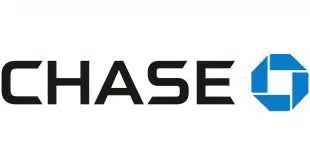Several years of hype haven't yet motivated many consumers to embrace banking and payments through cell phones and other mobile devices, though there are signs that consumers are warming to the new technology, according to new survey results from KPMG LLP. The audit, tax, and consulting firm asked more than 4,000 people in 19 countries, including 500 in the U.S., for their attitudes about banking and payments through mobile devices as part of a broader survey completed last November. The good news for banks and tech providers: 85% of U.S. respondents believe mobile banking is important, according to a KPMG release. The bad news: 91% haven't tried mobile banking, and hardly any think they should pay for it. Some 48% of those in the “haven't tried” group cited security and privacy concerns for avoiding mobile banking. Mitch Siegel, director of payment advisory services in KPMG's Financial Services practice, calls that finding “not surprising,” especially with the heavy media coverage about payment card data breaches. “People are just broadly concerned with security and how that pertains to mobile as a channel,” Siegel tells Digital Transactions News. But consumers' attitudes could be starting to warm toward mobile banking and payments, in part because of the rapid spread of smart phones such as the BlackBerry and iPhone that work better with bank and merchant Web sites than conventional cell phones, according to Siegel (Digital Transactions News, April 7). Nineteen percent of U.S. respondents said they are at least “somewhat likely” to use their mobile device for online banking in the next 12 months. Sixty-eight percent of American respondents said their current bank doesn't offer banking through a mobile device, a figure that likely underestimates the proliferation of mobile banking now that so many banks offer their own services or re-sell those of processors. That indicates that financial-services providers need to work harder to make their customers aware of mobile banking, according to KPMG. Also, says Siegel, while some big banks have made noise about enrolling large numbers of customers for online banking, many customers don't use their mobile devices for banking because those devices are slow or otherwise incapable of handling financial functions satisfactorily. Regarding payments, 95% of U.S. respondents said they never made a purchase from a vending machine using their mobile device and 95% said they never made a purchase using a mobile device through a retailer's mobile Web site, according to KPMG. Those results further suggest unfamiliarity with or lack of comfort in using a mobile device for transactions and payments, KPMG says. Contactless payments, now primarily conducted with chip-equipped cards that also have a conventional magnetic stripe, probably will be confined to low-ticket niches such as fast food or movie theaters, according to Siegel. “We think of contactless as a stepping stone” to payments through mobile devices, he says. Meanwhile, 7% said they are willing to pay at least a nominal fee to access online banking services from their mobile device. (The survey didn't ask about specific dollar amounts consumers might be willing to pay.) That means the overwhelming majority of consumers believe mobile banking should be free, leaving it to banks, device manufacturers, and telecommunications companies to figure out how to serve the market and still make a profit. “It's going to be difficult to charge on transactions,” says Siegel, though he adds that consumers might accept monthly fees as the market for mobile financial services develops. The poll was New York City-based KPMG's third annual “Global Consumers and Convergence” survey, but it was the first to ask questions about mobile banking and payments. Most of the research was done online, although KPMG did face-to-face interviews in India and South Africa.
Check Also
Eye on Restaurants: Tech Consolidation’s Importance Grows; Meal Ticket’s New Network
As point-of-sale systems, marketing platforms, and inventory management all find their way to small and …




